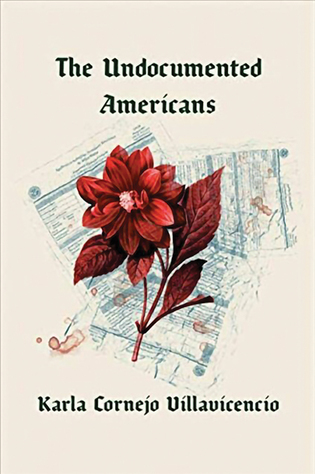
The Undocumented Americans
Karla Cornejo Villavicencio ’19phd
One World, $26
Reviewed by Sylvia Brownrigg ’86
“How often do you have nightmares?” Karla Cornejo Villavicencio asks the undocumented women she meets on her travels around the US. In Miami, she hears from a Bolivian lawyer who now cleans houses; a Haitian vodou priestess; and an Argentinian mother of four whose husband died of a brain tumor after being refused treatment by local hospitals. To her question, these women answer: every night.
The author, who took her PhD in American studies at Yale, has shared such nightmares. She came from Ecuador as a child to join her immigrant parents in New York. “As an undocumented person,” she writes, “I felt like a hologram. Nothing felt secure.” Cornejo Villavicencio knows viscerally the fear that you might be deported at any moment—like another housecleaner who typed in the wrong security code at an employer’s home, bringing the police and, in turn, ICE agents. Though well aware that her own story looks like the American Dream (she went to Harvard), Cornejo Villavicencio traces her ongoing mental health afflictions to early and sustained trauma.
Her main aim is political in the sense that she wants to give voice and face to workers on whom so many “legal” Americans of all races depend. Cornejo Villavicencio’s empathy and indignation fire a lyrical prose, describing the resilience of these men and women navigating their jobs, their risks, their families. She starts in conservative Staten Island, where day laborers, some young and some old, try to earn wages in construction; after Hurricane Sandy, day laborers volunteered to clear fallen branches and other debris. Similarly, after 9/11, many immigrants worked long days of cleanup, and suffered long-term health issues as a result.
In Flint, Cornejo Villavicencio meets a young woman whose baby was born blind, from lead poisoning. Some immigrants thought government officials coming to their doors to warn about the water were from ICE, and only learned later from relatives in Mexico about the hazard. In New Haven, she befriends an Ecuadorian father of three, a skilled construction worker in the US for 20 years, taking sanctuary in a church so he won’t be sent back.
“The US government’s crimes against immigrants are beyond the pale and the whole world knows,” Cornejo Villavicencio writes; in this powerful book, she draws portraits of what that means, in individual, human terms.
Sylvia Brownrigg’s novels Pages for You and Pages for Her are now available in paperback.
 loading
loading